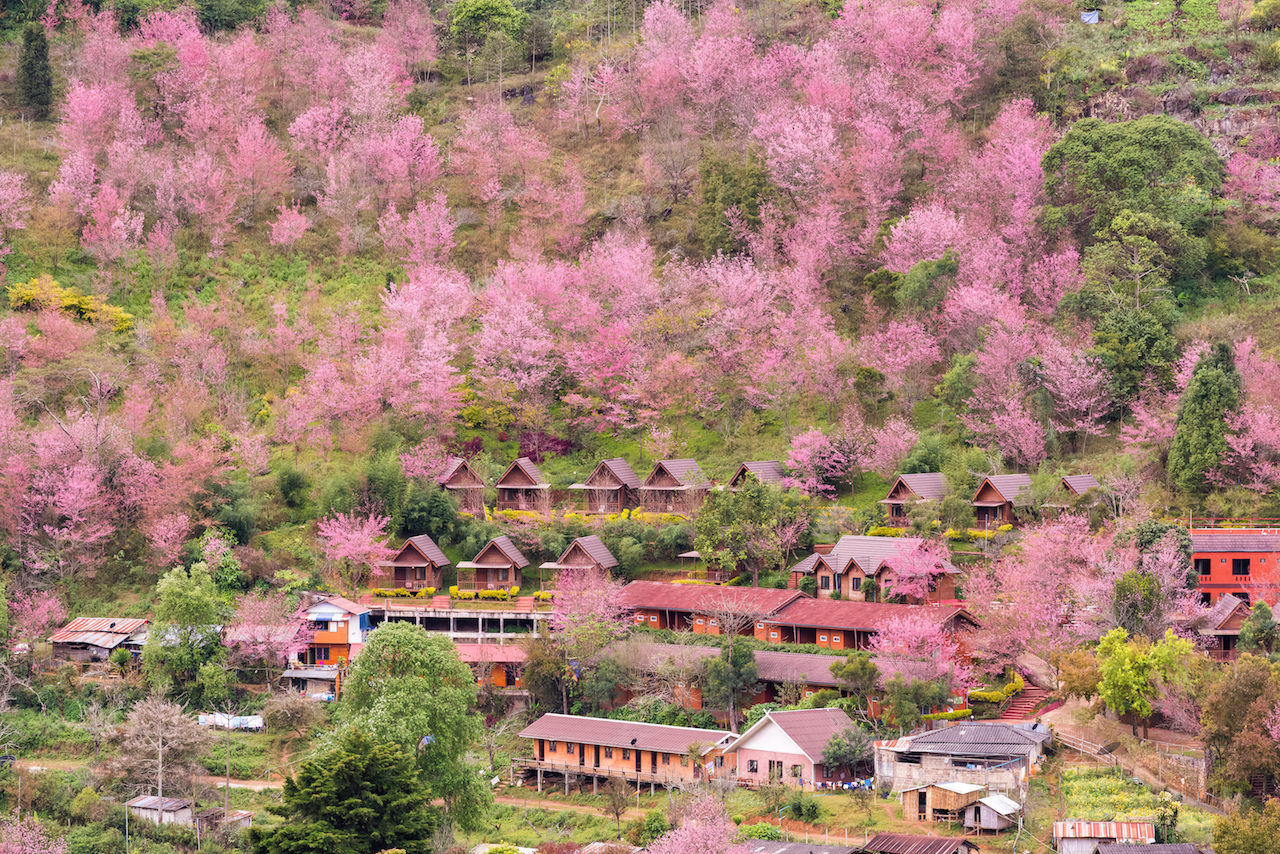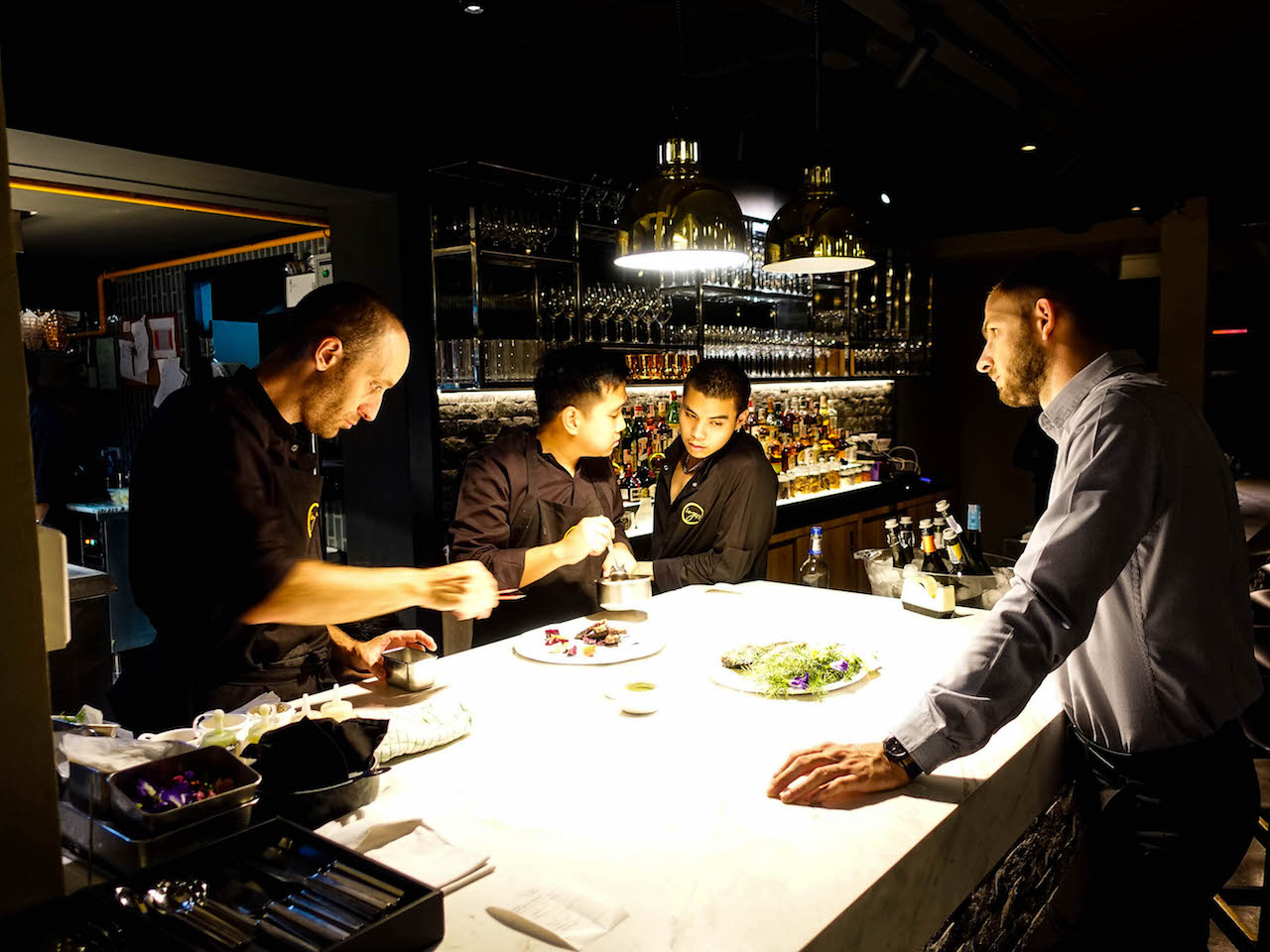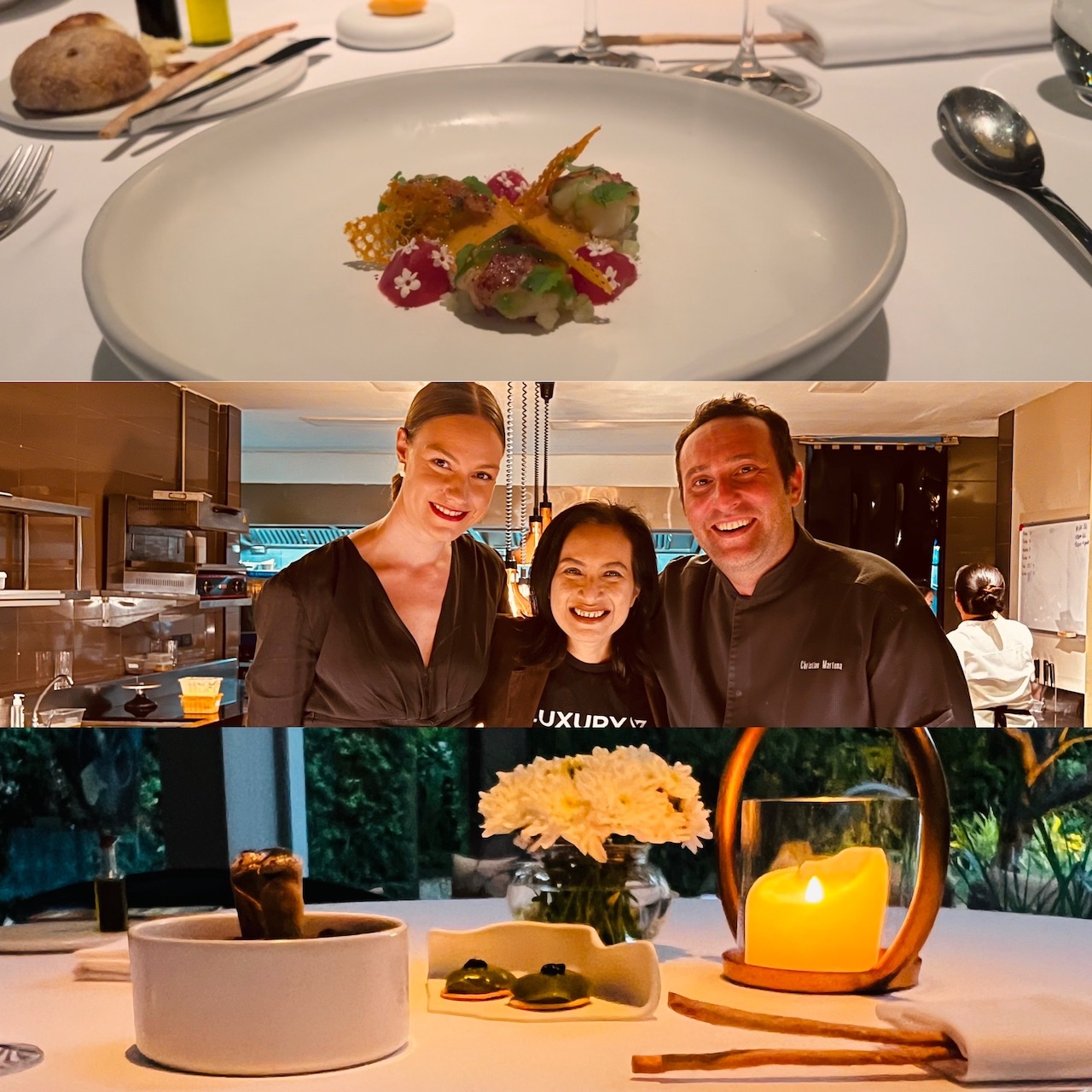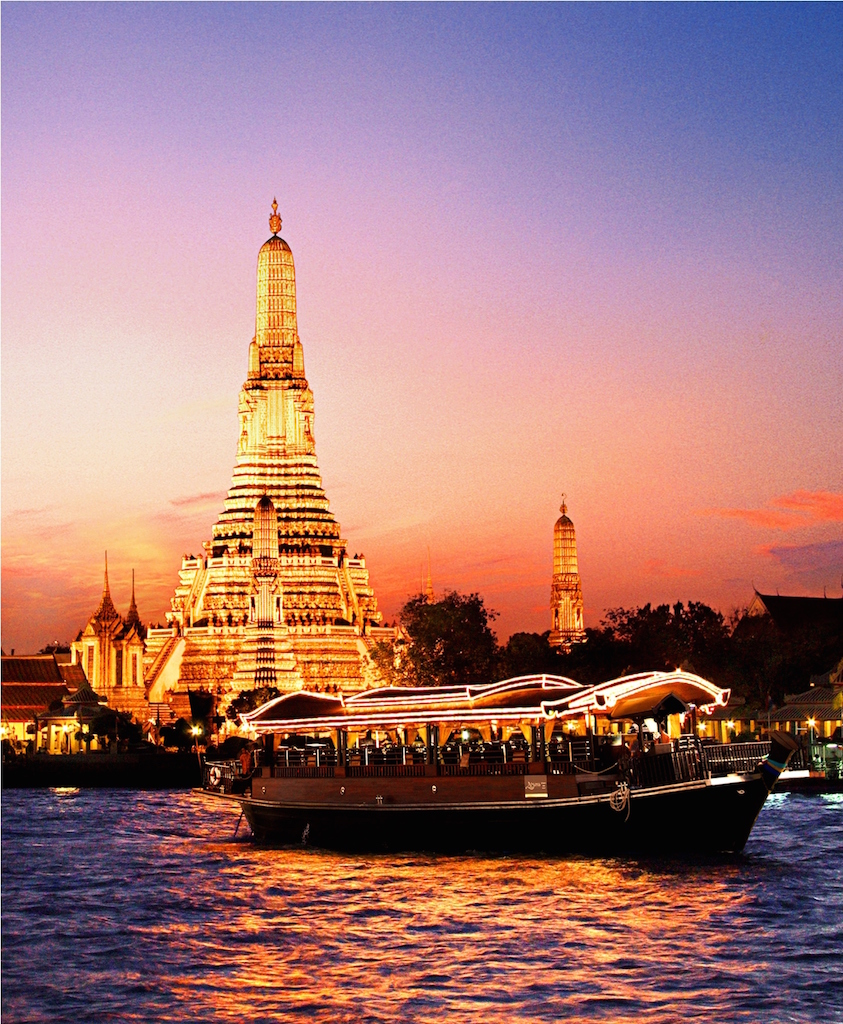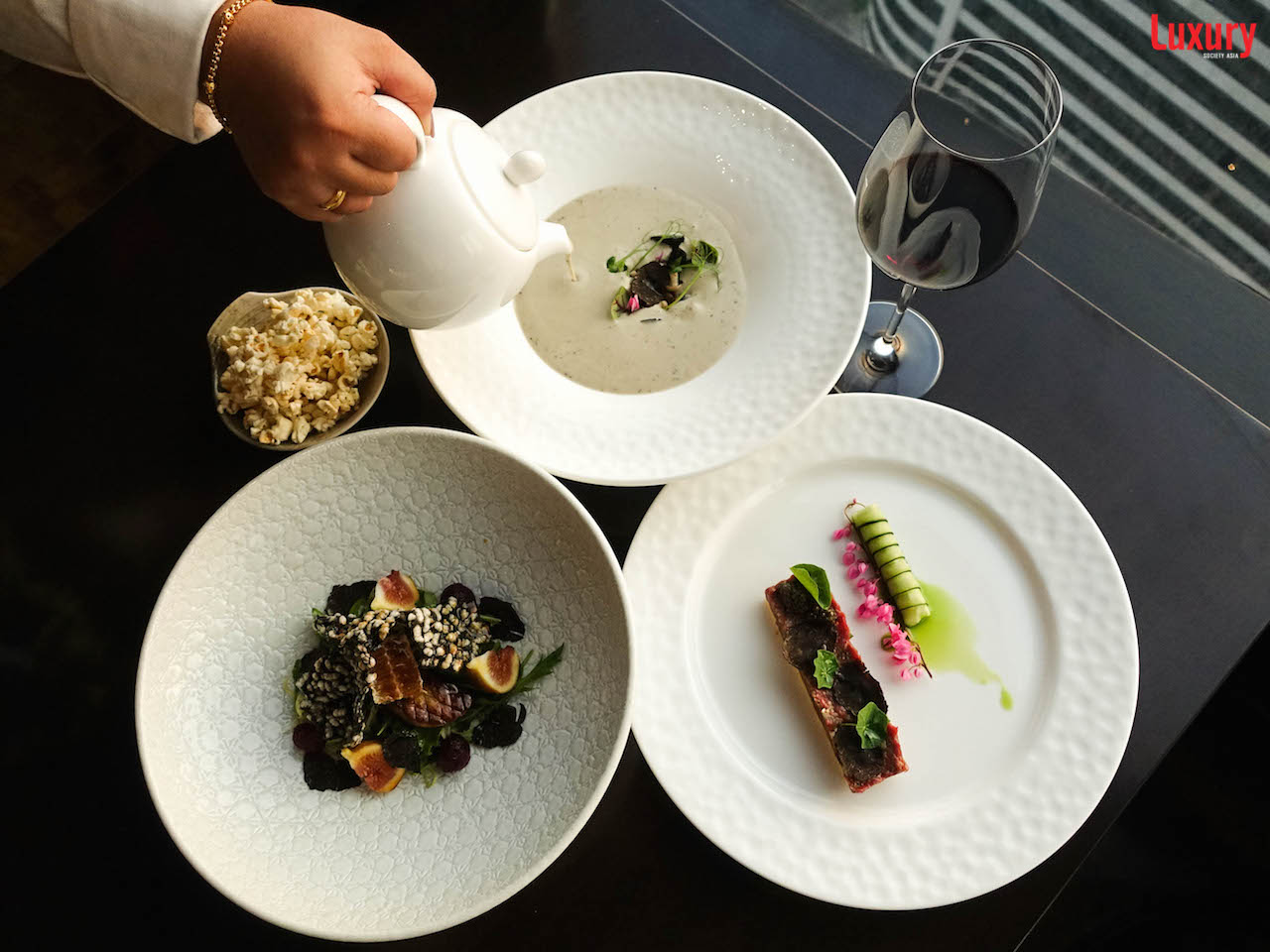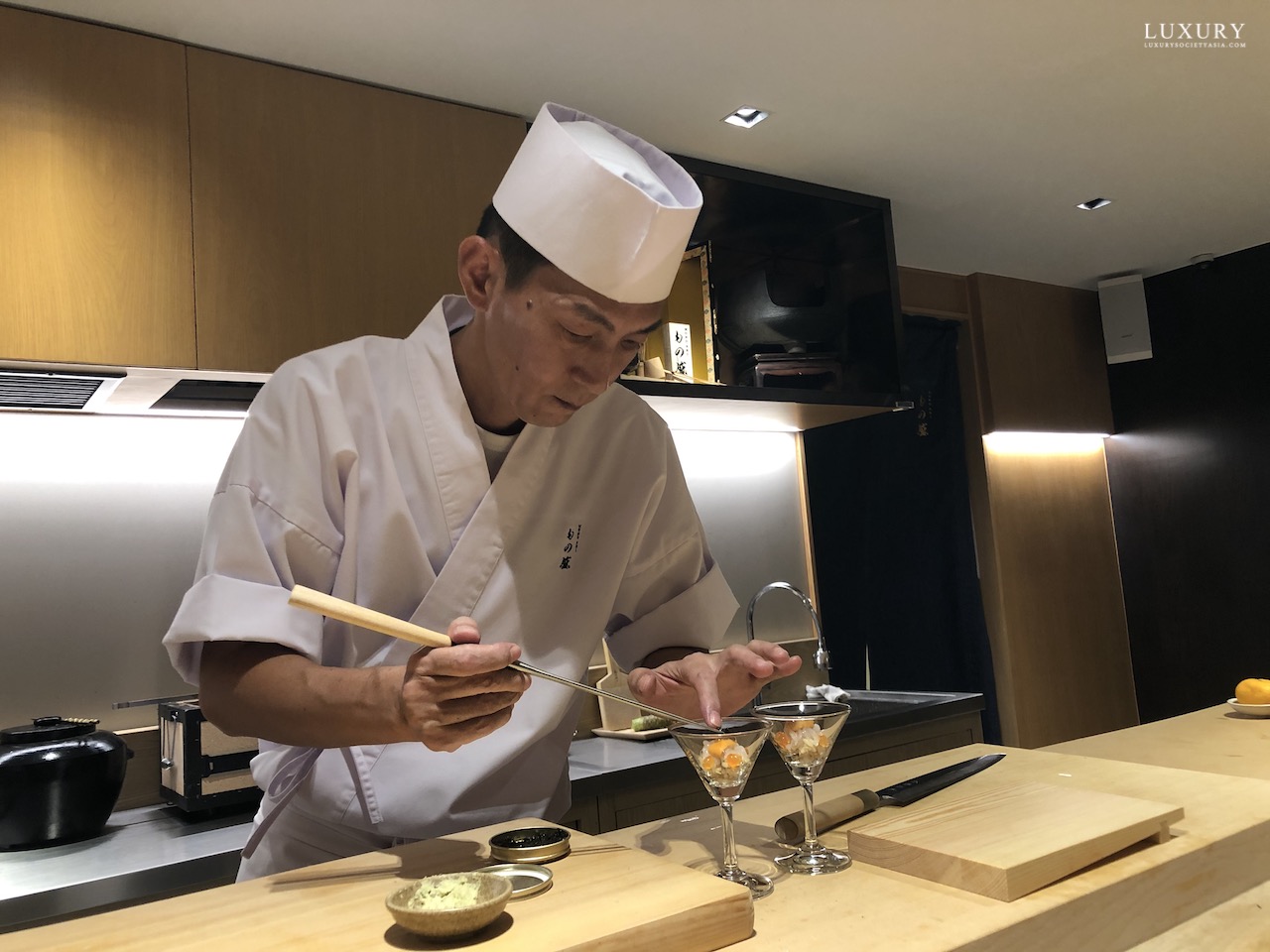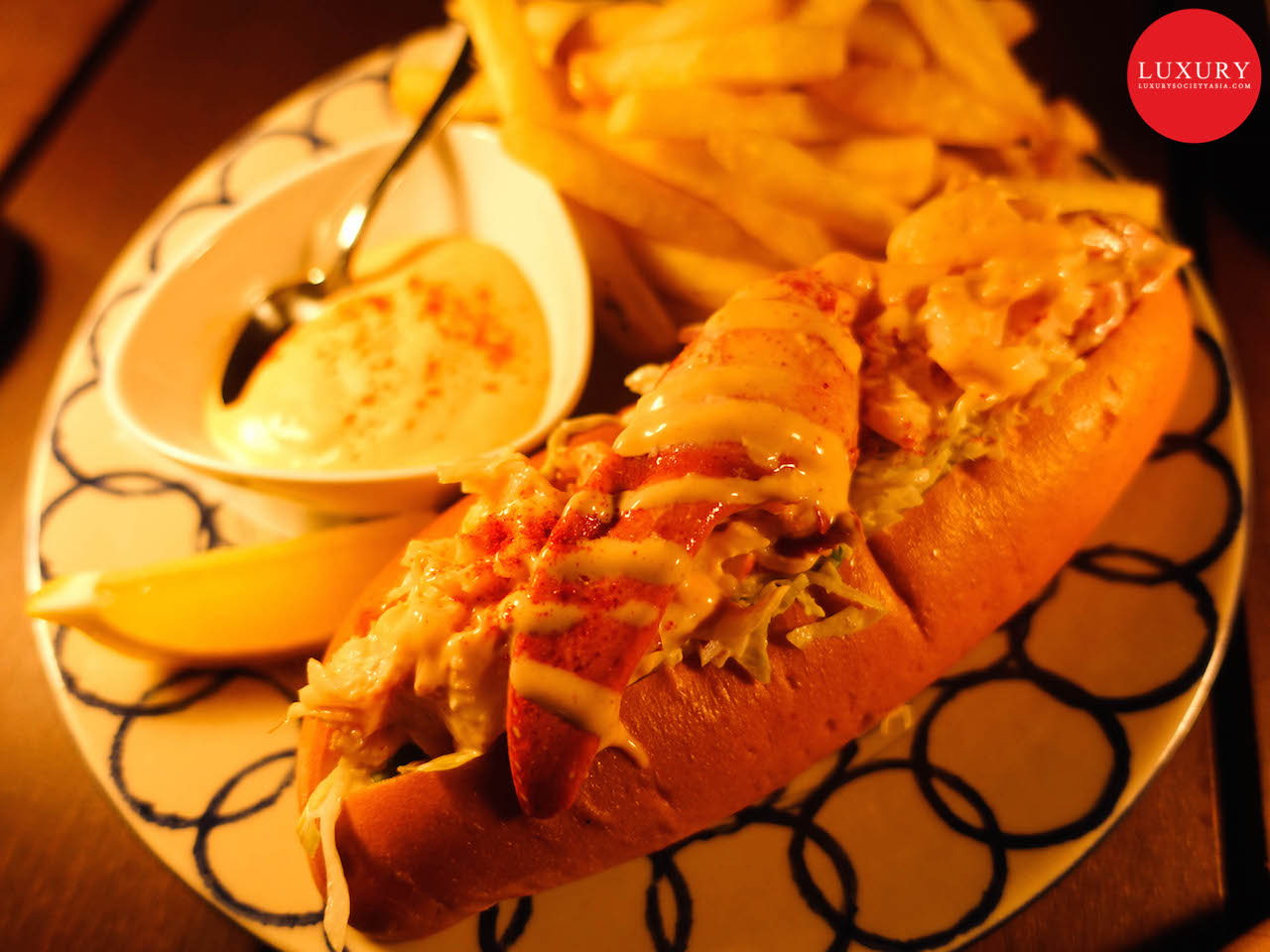Slow food: Royal Projects enable tourists to make a grassroots connection
His Majesty King Bhumibol Adulyadej dedicated his life to improving the lot of his subjects, fighting poverty and helping to preserve the kingdom’s natural resources for future generations. And nowhere is his dedication more evident than in the various Royal Projects initiated throughout Thailand.
King Bhumibol initiated the Royal Projects back in 1969 as a way of seeking solutions to problems; such as, poverty and opium production in the Golden Triangle region of the North. By promoting alternative crops and encouraging reforestation, he was able to give farmers a new source of income and a sense of pride in their products and community. There are six Royal Development Study Centres around the country where research takes place and regional strategies are developed. Farmers can visit them to improve their knowledge and learn about environmental conservation.
These Royal Projects boost local economies, help promote water conservation, swamp drainage, self-sufficiency and the preservation of Thailand’s forests. The projects are not just aimed at helping people with their immediate needs, but also to help future generations enjoy the nation’s rich natural heritage. They also offer tourists a new way of experiencing Thailand and of making a real grassroots connection with the kingdom’s diverse people. All the Royal Projects welcome visitors, and there is a diverse range of things to do. You could find yourself learning how to make a unique local dish, releasing fish into the Thai seas, feeding cattle or teaching the village children before spending a night under the roof of a local family and joining their meals and laughter.

Royal Agricultural Station Angkhang, Chiang Mai
Angkhang is still home to one of the most important Royal Projects and is a centre for research in cold climate crops thanks to an annual mean temperature of only 16.9 Celsius and fertile soils. It is home to various ethnic groups who live in the surrounding villages, and visitors are welcome to explore the local culture or rent accommodation when trekking. Do keep an eye out for the local wildlife as some of the bird species here are very rare.
Royal Agricultural Station Inthanon, Chiang Mai
This is one of the oldest of the Royal Projects, founded back in 1979. Here hill-tribe people grow sustainable crops with regular harvests to prevent slash and burn techniques and to ensure they never again have to rely on opium as a cash crop. Inthanon is a beautiful place to visit, as it is a research centre for flowers, ferns and decorative plants as well as vegetables and fruits. It is also in the hills and only a few kilometres from Thailand’s highest peak of Doi Inthanon, and the cool climate makes it the perfect place to go hiking. Don’t miss the chance to visit the Siribhume Waterfall or walk among the orchards and vegetable gardens, see the rose gardens and take cultural tours around the Mong Khun Klang village.
Nong Hoi Royal Project Development Center, Chiang Mai
Another northern Royal Project, Nong Hoi, was also set up in 1974 with the aim of helping Hmong hill-tribe people diversify their crops. Now it is a popular venue for eco- and agro-tourism. It is also home to Yao, Lisu, and Haw (Chinese) hill-tribes. You can see some unique handicrafts being made and some traditional ceremonies if you’re lucky. Don’t miss the chance to explore the local nature trails or head up the Doi Mon Chaem path that takes you to a lookout with an amazing view.

Chang Hua Man Royal Project, Phetchaburi
This is one of the newest Royal Projects initiated in 2009, and is aimed at showing how crops can be grown to a commercial level without the need for damaging chemical fertilisers. The Project boasts a dairy farm and has become a learning centre for farmers who want to improve milk yields. Tourists can learn about the lives of Thai farmers and get the chance to plant rice in the paddies. There are guided tours and bicycles can be rented to tour the region and enjoy the orchards and meadows of wild flowers.
Sustainable agriculture based on His Majesty King Bhumibol Adulyadej’s Sufficiency Economy Theory is the agricultural practice that does not strive for the optimisation of profits, but focuses on the achievement of maximum benefits for the quality of life, communities, and environmental conservation. His Majesty’s concept of self-sufficiency and principle of moderation promotes the efficient use of land where farmers adopt an integrated organic farming system. To be self-sufficient, farmers raise animals and organically grow an appropriate amount and variety of crops aiming for adequate supply of food for household consumption, while the surplus is sold for additional income. Besides reducing costs and dependence on unnecessary external factors, the integrated farming system also improves the environment and agricultural produce, which leads to the sustainability of agriculture for the farmers.
Laem Phak Bia Environmental Research and Development Project, Phetchaburi
One of the most important Royal Projects can be found not far from Bangkok in Phetchaburi. This is the Laem Phak Bia Environmental Research and Development Project (LERD), which is aimed at improving methods of water conservation and mangrove restoration. Mangroves and wetlands are vital for Thailand’s ecology, so the work of LERD is ever more important as human activity creates more waste and waste water. You can visit this model of environmental improvement and stroll down the picturesque pathways through the mangroves. Among the twisted roots and vines, you may get a glimpse of birds, mudskippers and a wide range of crabs. At the end of the walkway is Sai Met Raek Viewpoint that offers a lovely view of the Thai Gulf.
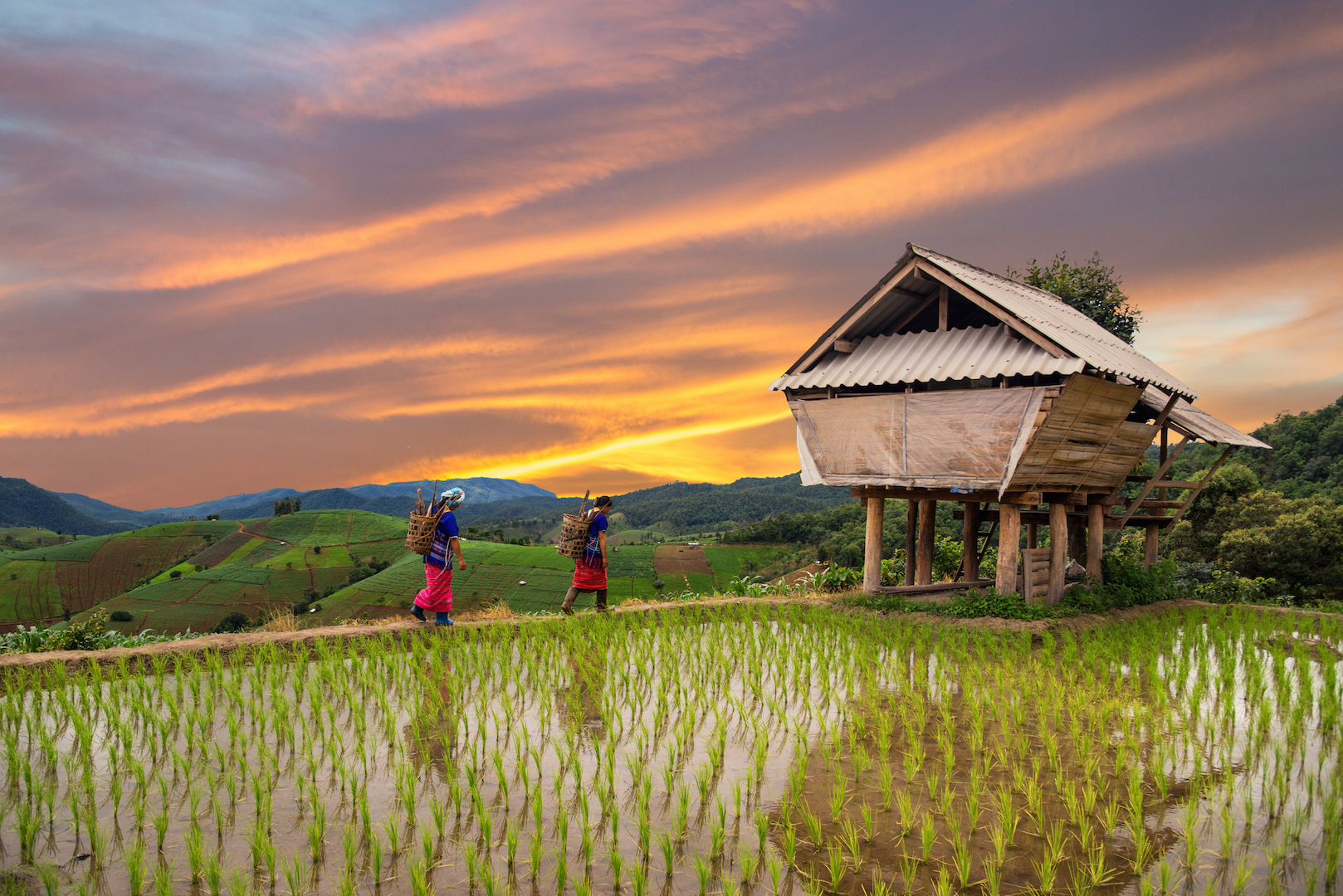
Create a Multiplier Effect to the Community at Amphoe San Pa Tong, Chiang Mai
Tucked away in the quiet, rural countryside of Chiang Mai province is the Sanpatong Farmstay project, which is operated by Volunteers Without Borders. The project aims to introduce sustainable agricultural practices based on His Majesty the King’s Sufficiency Economy theory to the local community through a wide range of activities at the Sustainable Agriculture Training Centre, which is located onsite. A “profit sharing” programme is an integral part of the project, in which the areas within the farm are allocated to the villagers and agricultural students so they can obtain practical farming experiences while acquiring the sense of ownership of the land.
Volunteers Without Borders believes that local children are the fundamental factor in educating the community about sustainable agriculture. A combined English and farming lesson at the Sustainable Agriculture Training Centre, as well as the Agriculture for School Lunch projects that Volunteers Without Borders help set up at the schools allow the children to acquire the sustainable agriculture practices that they can go home and show to their families.
Working on the farm or teaching English offers the chance for the volunteers to explore the concept of sustainable agriculture, Thai farming techniques, and the local culture, while the children and villagers get to learn English, gain farming skills, and improve their standard of living.
In 2018, the TAT will change its marketing angle slightly with a new concept called “Open to the New Shades of Thailand” urging visitors to experience a unique cultural experience while visiting Thailand, and visiting one of the Royal Projects is a great way to do just that.

